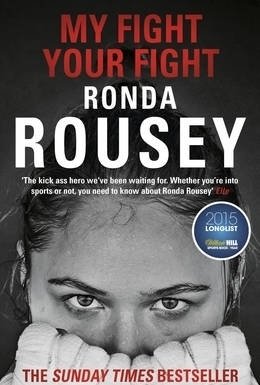Sensitivemuse (246 KP) rated Silence for the Dead in Books
Mar 29, 2018
The plot itself was good. It had the elements of a good gothic theme - not scary enough to make people read it in daytime (seriously?) but it had some good decent creep factor in it. It’s enough to set the mood and theme of the book but nothing to make the skin crawl. The element of mystery was also there and the ghost story aspect was good - nothing to blind side you - except perhaps for a little twist in the end (with where the ghost was and who was it manipulating etc etc). It’s pretty much a stable plot with all the main points closed (or is it? *queue creepy organ music*) so I’d have to say the gothic ghost story was what was in it for me.
Character wise. Kitty is likable. She’s resourceful, and a survivor from horrible abuse. Big applause for her for being strong and able to stand up and survive through various ordeals. Captain Mabry stood out for me because I enjoyed reading about his character. He seemed to be the strong stable silent type in the asylum where you have various patients with various issues (most were casualties of World War One) and there was a certain calmness about him that made him likable.
It’s pretty much obvious Kitty and Jack were to be together. The romance aspect in the book was all right. Necessary? I’m not sure perhaps. It’s not really for me. When their romance was more cemented was where the book was starting to take a slight turn downhill.
So near the ending when everything was revealed, all plot holes start to close. Sometimes, depending on the writing, you can stretch it out and make it interesting. Or you can make it drag. This one, unfortunately drags. We’re done with the ghosts, everything was answered, and the last 30 pages or so I just wanted the book to end. The romance of Kitty and Jack intensify and this is where intense eye rolling is also induced. Dear Lord, am I reading this just to see if there’s a scary twist at the end? Or am I wasting my time? Well sadly, I wasted my time. It was good to see what happened to characters like Mabry, and even Matron, but it just dragged way too much. Yeah okay we get it Kitty and Jack forever. Why do we need so many pages of this, am I suddenly reading a romance now?
Other than the ghost story in this book, the romance nearly killed it for me and a dragged out ending. Perhaps a nice twist in the ending would be nice. Or maybe skim the 30 pages and be done. I would say take it or leave it with this book. It was moderately enjoyable for me.

iHuman Books
Education and Book
App
We help kids fall in love with reading! iHuman Books presents a full package of engaging reading...

Elders Weather App
Weather
App
Elders, a leading Australian agribusiness, recognises how important it is to have accurate weather...
ArecRain (8 KP) rated The Way You Bite in Books
Jan 18, 2018
I have really been winning with the classic paranormals lately. Dont get me wrong, I love reading authors new creations and mythologies, but sometimes, the classics are just tops. A good ole fashion feud between vampires and werewolves? Yes please! Not only that but it was done well.
It was difficult not to love the hero. At first, you think he is going to be just another Alpha. Then you are treated to an open loving man who is willing to modify his actions and thoughts rather than remain unyielding. The heroine was a little more complicated. I agreed with her sense of independence and thoughts about violence. However, you can be independent and still have a partner. At times, Vee is stubborn and set in her ways to the point of being obnoxious. I am all for strong independent women, but I am tired of them associating it with being alone.
Overall, it was a great paranormal novel. An interesting world inhabited by good characters and an action-packed plot to keep you reading until the end. The chemistry didnt seem forced, and I couldnt have asked for a more satisfactory ending. I believe this is a standalone for the author, but you can bet I am going to check out some of her other work.
If you are looking for a good paranormal romance for a rainy day, this ones for you!
Applied Machine Learning for Data Scientists and Software Engineers: Framing the First Steps Toward Successful Execution
Andrew Kelleher and Adam Kelleher
Book
The typical data science task in industry starts with an "ask" from the business. But few data...
Grimes recommended My Fight / Your Fight: The Official Ronda Rousey Autobiography in Books (curated)
Maris (8 KP) rated Turtles All The Way Down in Books
Jun 10, 2019
This is the second book I ever read from John Green and I love everything about it. There is just something about John Green's writing that just keeps me going and going and not wanting to stop.
This story is exactly what I needed this weekend. Mix of mystery, romance, and a little bit of humor. The story was smoothly put together into place nicely where I have a full understanding of what's going on and enough action going on where it kept me reading.
We have a story where a 16-year-old Aza who is the main character and her best friend Daisy are investigating a fugitive who is a billionaire who is missing and there is a hundred thousand dollar reward leading to the fugitive named Russel Pickett. Aza used to hang out with the fugitive's son name Davis when they were kids. Aza and Davis reconnect with each other and build a relationship. Thru the whole book, we are in Aza's point of view on things and what she is dealing with.
Aza has severe Anxiety issue when it comes to health. John Green did a wonderful job writing about Aza and how she feels and what she is thinking. I truly enjoyed reading about her and how she deals with her life and everyone around her. Her relationship with her mother and her best friend and Davis is wonderful to read seeing the character growth thru out the book with them.
I would like to share that I absolutely love Daisy, Aza'a best friend! If Daisy was in the real world her and I would have been good friends. I love that she is a Star Wars fanatic and who she is as a person makes me smile and laugh where you need a Daisy in your life. The character growth between her and Aza was amazing to me, they are two different people who are best friends which reminds me of my best friend that I grew up with.
I was so curious to what happened to the missing fugitive and also wondering what the relationship with the characters would end up towards the end of the book. I am very pleased with this book and highly recommend it!

Playtime with Shimmer and Shine
Games and Education
App
Boom Zaramay! Play with Shimmer and Shine in five magical mini-games filled with sparkling...

VPN Guru - Master of Fast VPN
Productivity and Utilities
App
Enjoy secure and free connection to the world! VPN Guru is truly a secure, fast and stable VPN...
ClareR (6091 KP) rated The Warehouse in Books
Sep 25, 2019
The Cloud rules pretty much everything. We learn of its genesis from one of the narrators: Gibson. He is the founder of The Cloud, and built the business up from nothing. He is nearing the end of his life, and he has decided to blog during his remaining weeks as he visits all of The Cloud installations in the US.
Paxton used to have his own small business, but after The Cloud takes his product and sells it at a much cheaper price, his company folds. He finds himself without a job, home and money. So he decides to go and work for Cloud. Those who work there, live on site in small apartments. The children of workers are educated at Cloud schools, workers are entertained on site, and there are restaurants, shops and cinemas - all within the Cloud ‘town’. There is no reason to ever leave these huge towns (it reminded me of the Victorian models of towns built around coal mines or factories- the owners would provide accommodation near to work, so that there would be no excuse not to go to work. If you lost your job, you lost your home.).
Zinnia also gets a job at Cloud at the same time as Paxton, but she has an ulterior motive for being there. She’s an undercover spy for a competitor, and she has been given a job to do by someone that she’s never met.
Capitalism does not do well out of this book. It’s like the author has taken the idea of capitalism to its furthest point to show us what will happen if we and our governments continue to give big business the freedoms and money that we do. Every aspect of the workers lives is monitored through a wristband that they must wear at all times. In my e was no way that these people could ever imagine that they were free. They weren’t. Accidents at work were brushed under the carpet, as were assaults (sexual and physical), and drug dealing. Everything was done to the advantage of The Cloud.
I really enjoyed this, and it not only entertained, it gave me food for thought. What would our world be like bereft of humanity and morality? Well actually, I think it would be pretty much like living in The Cloud facility! And the thing is, it’s all perfectly plausible! This is a great read.
Many thanks to NetGalley and Bantam Press for my copy of this book to read and review.




